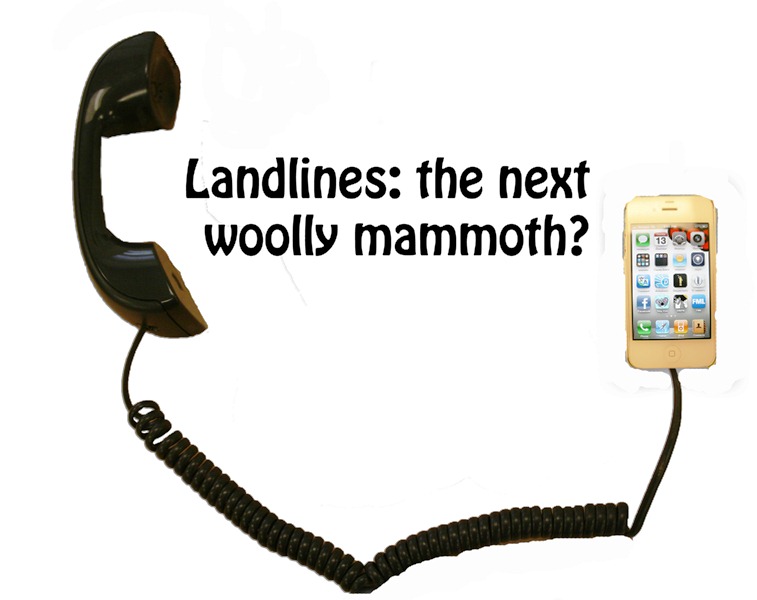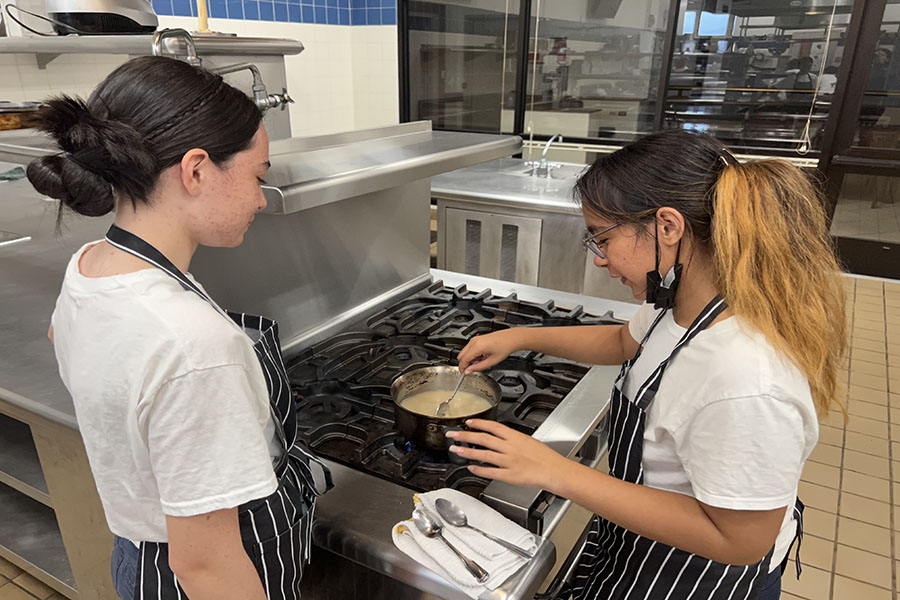This item originally ran in our print edition 9/23/11.
One of the most ubiquitous items out there is the cell phone, which evolved from the landline. Today, those landlines are quickly headed for extinction.
According to the National Health Interview Survey Jan.–June 2010, families with only cell phones are growing. About 26.6% only had cell phones and this percentage had increased 2.1% since 2009. This survey found that during the first six months of 2010, about 40 million adults lived in cell phone-only homes.
In homes that have not yet taken the cell phone-only plunge, the number of cell phones is quickly overtaking the number of landline phones.
A Ka Leo O Nā Koa poll taken in September shows that 122 out of 200 students, almost 84%, have four or more cellphones in their households, but only 1.5% have four or more landline phones. The ratio is only slightly different among the teachers with 30 of 40 teachers, or 75%, having four or more cellphones and about 6% with four or more landline phones.
Freshman Taylor Lee does not have a landline at home. “I don’t notice it’s gone because I never used it,” Lee said. “No one uses it any more because no one needs it.”
Lee believes cell phones are better because, “They are portable and they have a lot more features.” He also said that landlines are bothersome because of the incessant telemarketers.
Another student has the opposite (and rare) situation of having four landlines in his home.
“I think that landlines are very useful,” said freshman Dayson Damuni. “They are used very often in my home, and are even used more than cell phones.”
He actually prefers the landline and thinks they are much easier to use and “they are always in the house, unlike cell phones that travel everywhere.”
“Using landlines are also easier because they are much bigger than cell phones,” said Damuni.
As popular as cell phones are, Mr. Siuai Laufou, the band and orchestra teacher, does not own one.
“I chose not to have a cell phone because I never needed one to begin with,” Mr. Laufou said. “People tell me that I am lucky not to have a cell phone because I am not subjected to constantly answering calls, reading messages, returning calls, or simply attached to the phone 24/7.”
He feels that landlines are better to have because they are convenient, and so far nothing has gone wrong with them.
“Outside of work and the house, I am not reachable. That’s how things were until the arrival of the cell phone. My contact with people has been normal with the use of e-mails, landline phones, or mailed letters.
Mr. Laufou also believes that the cell phone is a major factor affecting society.
“Most people with cellphones are [so] addicted and attached to them that their [entire] day will be ruined by misplacing their cellphone,” he said. “It is like losing your wallet. You go nuts.”
Not only are today’s cell phone users “addicted” to their phones, as Mr. Laufou suggests, but they are also quickly becoming ill-equipped to use the standard landlines.
At the start of the school year, one KSM staffer shared her story of her pre-adolescent son trying to use a landline phone for the first time.
She said that she had instructed him to make a call on it, but could tell that he was confused. He lifted and replaced the handset several times, she said.
When she asked what was wrong, he said that the phone was making a funny noise. As it turns out, that funny noise was simply the dial tone, a sound he was unfamiliar with.
Still, Mr. Laufou is not alone. There are other dedicated landline users out there.
It might surprise some to know that some of Hollywood’s greatest stars do not use or own cell phones. According to 10 Famous Celebrities Without Cell Phones a Hub Page post by Kathryn Vercillo, celebrities Vince Vaughn, Tom Cruise, Elton John, Christopher Walken and Tyra Banks do not own them. Vercillo has been a freelance writer and blogger for 10 years.
The landline is still useful. Landlines make it easier to fax documents and to call people in foreign countries without worrying about software updates, service plans, or compatibility. Since they are physical lines, they are also more reliable when it comes to emergencies, during which cell phone services can become overwhelmed more easily than landlines.







